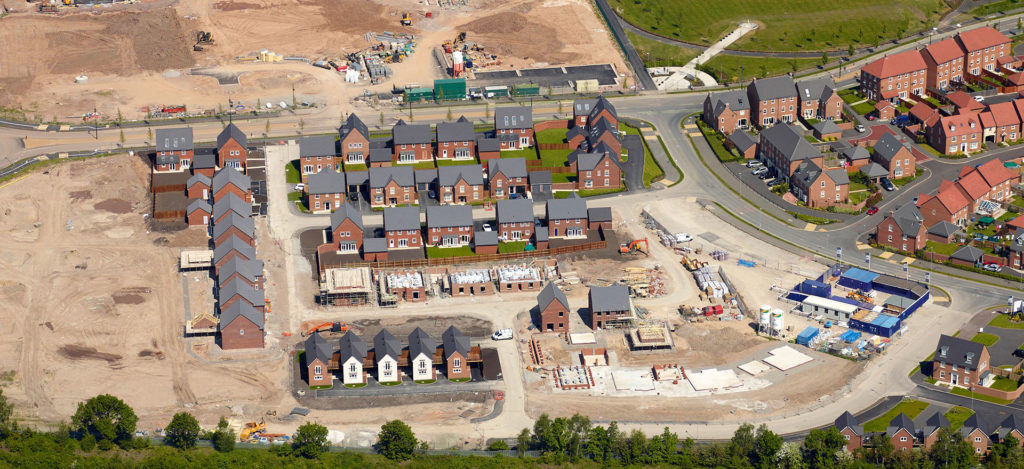News - Construction News
Scrapping planning reforms
11 Jul 22

Scrapping planning reforms: What’s changed and what are the next steps for local authorities?
In 2020 at the height of the pandemic, a proposal was released to entirely overhaul the UK planning system – but there was a sticking point. A recommendation to overstep current planning permissions was casually dropped into the conversation, presenting challenges on a local and national level.
There was intense political opposition to the government’s reform plans, which they heralded at the time as the way forward to a brighter future for building. Fewer than one in 20 local councillors involved in the planning process believed in the reforms.
There were concerns that the plans would create “the slums of the future” by allowing developers to, for example, convert shops into homes without permission from local authorities. However, rumours began to form that these proposed reforms were to be scrapped, and at the most recent Queen’s Speech it was confirmed that they would be reduced and folded into the levelling up bill.
In this article we ask Graeme Cooke, Commercial Director at DEF Software, what the new reforms stipulate, and what’s the wider impact they will have on planning teams within local authorities?
New rules
The new reforms are diluted, but there are still some significant changes that are worth paying attention to.
There is also the introduction of a new neighbourhood planning tool called a ‘neighbourhood priorities statement’. The aim of this is to provide communities with a simpler and more accessible way to set out their key priorities and preferences for their local areas. Local authorities will need to take these into account when preparing their local plans for the areas concerned.
The report also outlines the devolution of smaller local authorities into larger combined authorities. This idea of local government reorganisation is not new, and over the past few years many regions have combined smaller councils into one ‘super council’, essentially. The aim of this is to give authorities greater powers and offer each other guidance, however, there have been concerns that responsibility for larger areas may lead to a watered-down approach to more regional issues.
How does this affect local authorities?
For planning departments, there have been issues for some time. Significant delays to planning applications are almost always rooted in larger developments such as hospitals, hotels and car parks, not small-scale housing. So, these reforms are not likely to magically offer the carrot that they are dangling: high quality affordable housing.
When the initial reforms were announced, the Local Government Association recently highlighted: “In the wake of COVID-19, now is the time to strengthen our existing planning system, rather than destabilise it.” And as the economy is still unstable, I believe this still stands.
There are deep flaws in the system, but before we go in all guns blazing, perhaps it is worth analysing why this change is really needed and why the system in place now, doesn’t work well for every council. We need to identify why planning applications move so slowly. Is there a simpler way to speed them up, without creating dramatic and rushed reforms that could potentially damage our environment?
A simpler way to speed up approvals
If we’re really to address the issue, the government should research why some local authorities struggle to provide fast approvals and they should be investing in those authorities that are struggling.
Some councils are stuck in incredibly archaic planning approval processes, relying on confusing poorly designed paper documents or clunky IT provision. However, by automating the planning system or removing the planning process as we know it, we won’t override these issues, we’ll simply gloss over them as these councils continue to struggle with the workload.
The new bill suggested that suppliers now need to be Government approved. For those who are considering transformation to digital processes this could spell trouble, as they could be blocked from quickly implementing innovative technologies that could speed up planning processes.
Although it’s much less divisive than the previous proposed reforms, the bill is still putting forward some significant changes. To that end, although it was suggested the planning reforms were scrapped, it seems that we haven’t seen the last of them.
If you would like to read more stories like this, then please click here
More News
- Merit Appointed to NHS Shared Business Services Modular Building Framework
1 Jul 25
Merit is pleased to announce its successful appointment to the NHS Shared Business Services (NHS SBS)
- £1Bn backed renewal of broken bridges, ruined roads and tired tunnels
30 Jun 25
The Structures Fund will inject cash into repairing bridges, flyovers and tunnels across Britain.
- £8Bn to be invested in flood defences over the next decade
27 Jun 25
A record £7.9Bn over ten years has been committed to flood defences.
-
-
Latest News
- Merit Appointed to NHS Shared Business Services Modular Building Framework
1 Jul 25
Merit is pleased to announce its successful appointment to the NHS Shared Business Services (NHS SBS)
- £1Bn backed renewal of broken bridges, ruined roads and tired tunnels
30 Jun 25
The Structures Fund will inject cash into repairing bridges, flyovers and tunnels across Britain.
- £8Bn to be invested in flood defences over the next decade
27 Jun 25
A record £7.9Bn over ten years has been committed to flood defences.
- Boosting British jobs and skills key for firms to win major infrastructure projects
26 Jun 25
Creating high quality British jobs and boosting skills in local communities will be key requirements
- Major rail supply deal to protect thousands of British Steel jobs
25 Jun 25
Thousands of British manufacturing jobs have been secured as the Transport Secretary finalises a major
- Why early MEP design collaboration holds the key to smarter buildings
24 Jun 25
Working closely is essential to ensure that all aspects of a building’s design contribute to
-
-






